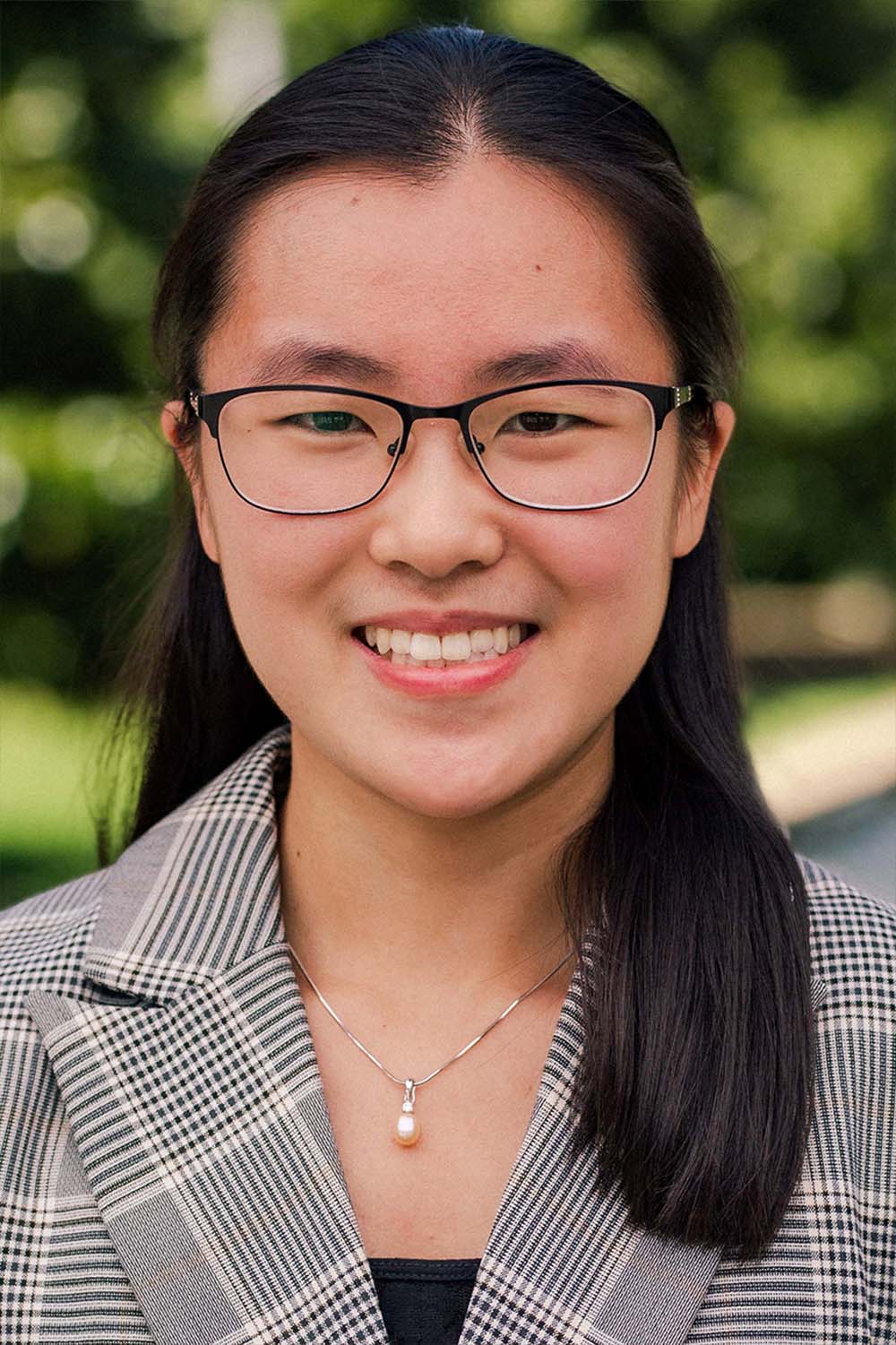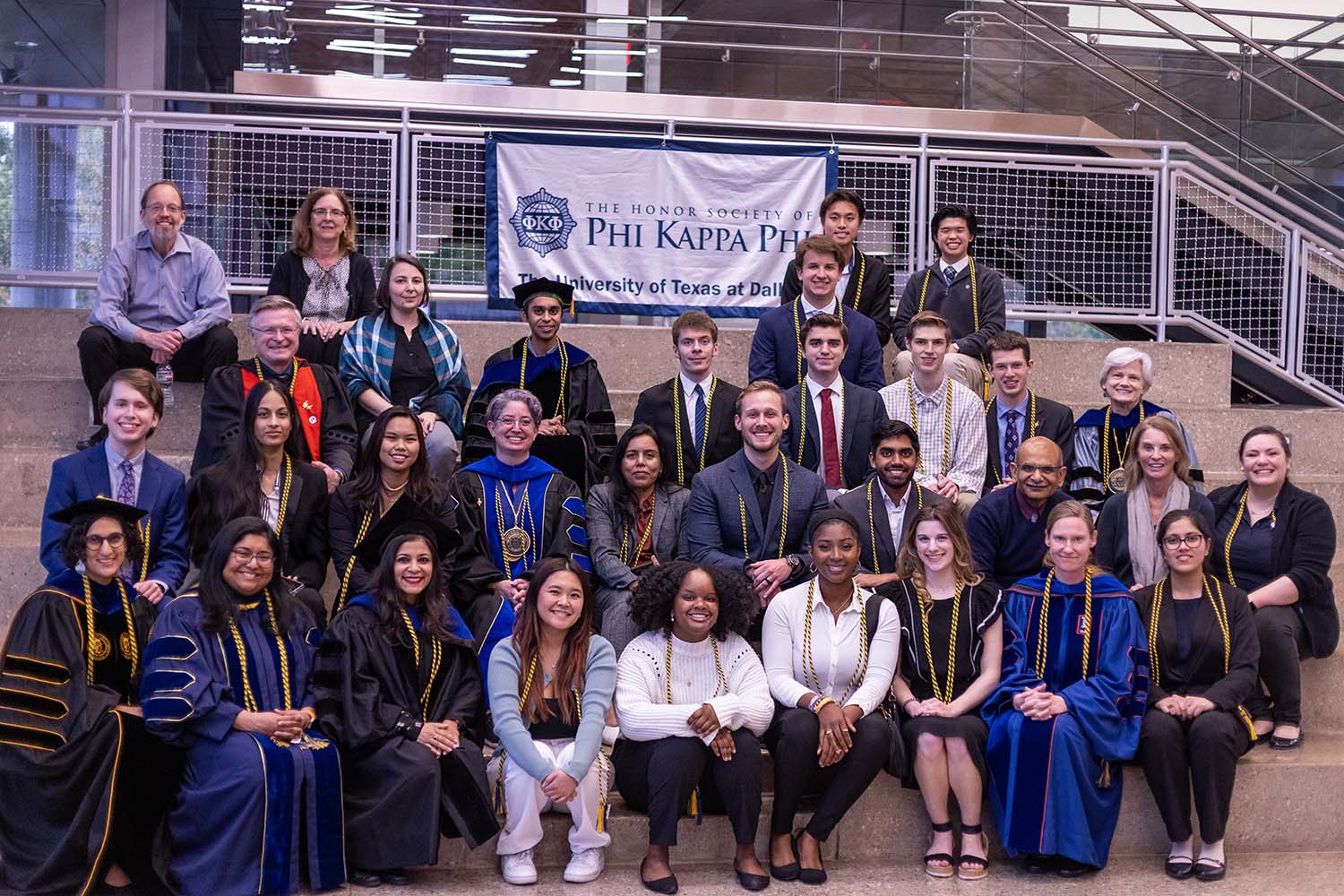Urann Fellow Mixes Many Talents as Poet, Musician, Med Student
By: Jessica Good | Jan. 17, 2024

In between playing her violin, writing a book of poetry and conducting outreach for patients with Alzheimer’s disease, Breanna Shen BS’23 made time to apply for a fellowship from The Honor Society of Phi Kappa Phi.
The neuroscience graduate won a Marcus L. Urann Fellowship, marking the 12th year in a row that The University of Texas at Dallas chapter’s nominee has received one of the honor society’s awards. Shen was one of six graduate students across the U.S. to win the $20,000 fellowship, which is given to Phi Kappa Phi members entering their first year of graduate or professional study.
Shen, a National Merit Scholar and Goldwater Scholar, is now an MD/PhD student at McGovern Medical School at UTHealth Houston and UT MD Anderson Cancer Center UTHealth Houston Graduate School of Biomedical Sciences. The eight-year program consists of three years of medical school, four years of PhD study and then one more year of medical school.
Despite being busy as a first-year medical student, Shen still makes time to play her violin with a chamber music group in Houston. She also serves on a social committee to plan events for the MD/PhD student community at UTHealth Houston.
As a UT Dallas student, she published a book of poetry titled Wings of Words that included a piece about her time as a college intern in a neuroscience laboratory.
“I played in string orchestra at UTD for three semesters, and I’ve been playing violin since I was 3 years old,” she said. “Music and writing are a big part of my life, so I’ll try to keep maintaining them.”
Dr. Douglas Dow, associate dean of the Hobson Wildenthal Honors College at UT Dallas, clinical professor of government and politics, and head of the Office of Distinguished Scholarships, said each university’s chapter of Phi Kappa Phi may nominate one student to compete for fellowships.
Shen’s music and poetry distinguished her from among the other candidates from UT Dallas, but her advocacy and outreach to the Alzheimer’s disease community particularly stood out, Dow said.
“She did a number of things on campus and off campus that were not research oriented, but public service oriented,” he said. “She founded the UT Dallas chapter of the Alzheimer’s Foundation of America, an organization that teaches about and supports the needs of people with Alzheimer’s disease and their caregivers.”
Along with her advocacy, Shen said her research experience was an important component of her undergraduate career at UT Dallas, where she said she found a culture of collegiality and mentorship.
“My experience with research, including publishing a paper, at UT Dallas felt instrumental in preparing me for medical school,” she said. “The University helped equip me for a career in medicine and science, and I feel like it provides an outstanding opportunity for undergraduates to get involved in research and make meaningful contributions.”
As a physician-scientist, Shen plans to investigate the mechanisms of neurological disorders and their treatments.
“I want to streamline bringing therapeutics from the lab into the clinic,” she said. “That will help improve the lives of the patients that I’ll also be treating.”
Phi Kappa Phi, the oldest and most selective multidisciplinary collegiate honor society in the United States, has had more than 1.5 million members join its ranks since the honor society’s founding in 1897. UT Dallas established its chapter in 2011.
Phi Kappa Phi Chapter Inducts New Members

The University of Texas at Dallas chapter of the Phi Kappa Phi honor society inducted 58 new members, including eight faculty members, 48 students and two staff members, in November. Dr. Jessica Murphy, dean of undergraduate education and the Mary McDermott Cook Chair for Undergraduate Education, is the chapter president.
Dr. Donal Skinner, Mary McDermott Cook Chair and dean of the Hobson Wildenthal Honors College, told the inductees in his keynote speech that they were an extremely select group of students.
“Phi Kappa Phi is where minds come to celebrate knowledge,” he said.
The collegiate honor society initiates approximately 25,000 members a year on more than 325 campuses. Membership is by invitation only and offered to the top 7.5% of second-semester juniors and the top 10% of seniors and graduate students.
Media Contact: Jessica Good, UT Dallas, 972-883-4319, jessica.good@utdallas.edu, or the Office of Media Relations, UT Dallas, (972) 883-2155, newscenter@utdallas.edu.





